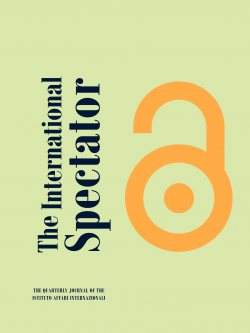EU Policy towards the Israel-Palestine Conflict: The Limitations of Mitigation Strategies

Over the decades, the EU has aimed at resolving the Israel-Palestine conflict through its Foreign and Security Policy (EUFSP) tools, with the ‘two-state solution’ as the over-arching principle for conflict resolution. This policy has been ineffective due to the contextual interplay of multipolar competition, regional fragmentation and EU-level internal contestation. Faced with these contextual constraints, the EU has employed a range of mitigation strategies: delegation as an institutional measure through its Common Security and Defence Policy (CSDP) missions; multilateralisation as a diplomatic/coalitional measure through its participation in the Quartet and other multilateral platforms; and selective engagement as a functional measure through its trade ties with both actors and humanitarian aid policies in order to mitigate the impact of the contextual constraints. However, none of the EU’s mitigation actions have adequately alleviated the impact of the three contextual constraints because of intra-regional sensitivities, divergences and violent clashes, as well as Israel’s ongoing occupation of Palestinian lands with the protection of the United States (US).
Keywords: European Union; Israel; Palestine; two-state solution; Arab-Israel conflict
-
Dati bibliografici
The International Spectator, Vol. 59, No. 1 (March 2024), p. 59-78 -
Numero
59/1 -
ISBN/ISSN/DOI:
10.1080/03932729.2024.2309664



